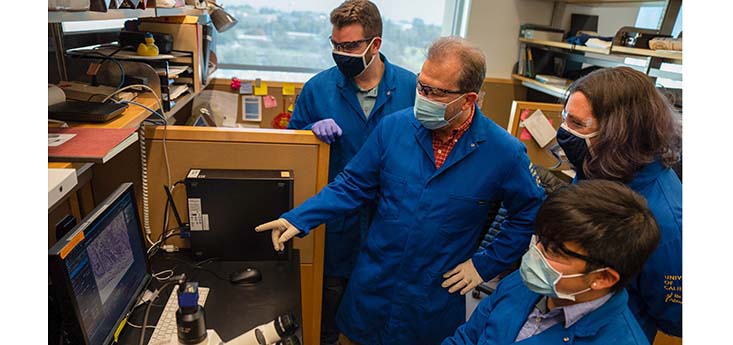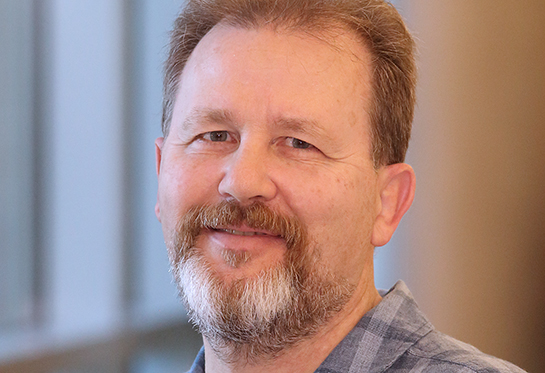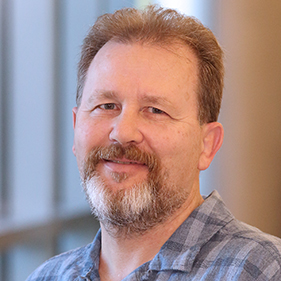UC Davis Prof. Andreas Bäumler awarded Robert Koch Prize 2021
UC Davis Professor Andreas Bäumler will be awarded the Robert Koch Prize on November 19, 2021 in Berlin. The recognition is for his groundbreaking research on the role of intestinal epithelium in the composition of microbiota and its effects in infectious and inflammatory diseases.
The prize, which includes 120,000 euros, is one of the most prestigious scientific awards in Germany.
He will share the award with Professor Yasmine Belkaid, immunologist and senior investigator at the National Institute of Allergy and Infectious Diseases (NIAID), and adjunct professor at the University of Pennsylvania.
“I thank the Robert Koch Foundation for this recognition. This is a great honor made possible by the dedicated work of present and former lab members and collaborators,” Bäumler said.

Andreas Bäumler
Andreas Bäumler is vice-chair of research and professor at the Department of Medical Microbiology and Immunology at UC Davis School of Medicine and at the College of Biological Sciences. He studied biosciences in Tübingen and earned his doctorate studying iron uptake and iron‐regulated genes in the bacteria Escherichia coli and Yersinia enterocolitica. He also conducted research at Oregon Health Sciences University and at Texas A&M University. Since 2005, he has been a professor at the University of California, Davis.
Bäumler is being honored for his pioneering work on the way intestinal epithelium cells regulate microflora composition and function. He was able to show that cellular respiration of the intestinal cells and their energy metabolism play an essential role in this. Bäumler's research provides completely new starting points for restoring the balance between microflora and the human body.
“We are very excited and proud about Dr. Andreas Bäumler being honored with the Robert Koch Prize,” said Satya Dandekar, professor of microbiology and the chairperson of the Department of Medical Microbiology and Immunology at UC Davis. “Dr. Bäumler has made seminal contributions for advancing our knowledge of the microbial dysbiosis during gut inflammatory infections. He is an exceptional scientist and a great mentor to junior researchers.”
This is a great honor made possible by the dedicated work of present and former lab members and collaborators.—Andreas Bäumler
Robert Koch Award Ceremony
“At a time when science and research are constantly at the center of public interest and are often the subject of unfiltered discussion on social networks, it is more important than ever to honor the hard work, unwavering diligence and thirst for knowledge of all the men and women who have dedicated their lives to medicine and biology,” says Wolfgang Plischke, chairman of the Robert Koch Foundation.
Professor Kyriacos Costa Nicolaou is awarded the Robert Koch Medal in Gold. Three young scientists, Megan Stanifer, Kilian Schober and Katharina Anna Christina Schaufler will each receive a prize of 5,000 euros.
The award ceremony will take place in Berlin, on Nov. 19 at the Berlin Brandenburg Academy of Sciences. The event will be streamed on LinkedIn.
About the Robert Koch Foundation

The Robert Koch Foundation e.V. is a nonprofit foundation for the promotion of medical progress, founded in 1907 and based in Berlin. It promotes basic scientific research in the field of infectious diseases as well as exemplary projects to solve medical and hygienic problems. Every year, the foundation awards several high‐ranking scientific prizes: the Robert Koch Prize, which is one of the most important scientific awards in Germany, the Robert Koch Gold Medal, three awards for young scientists and, since 2013, the Prize for Hospital Hygiene and Infection Prevention.
Robert Koch (1843‐1910), after whom the prize is named, founded modern bacteriology. For this he received the Nobel Prize for Medicine and Physiology in 1905. Koch headed the Institute for Infectious Diseases in Berlin from 1891 until his retirement in 1904.





